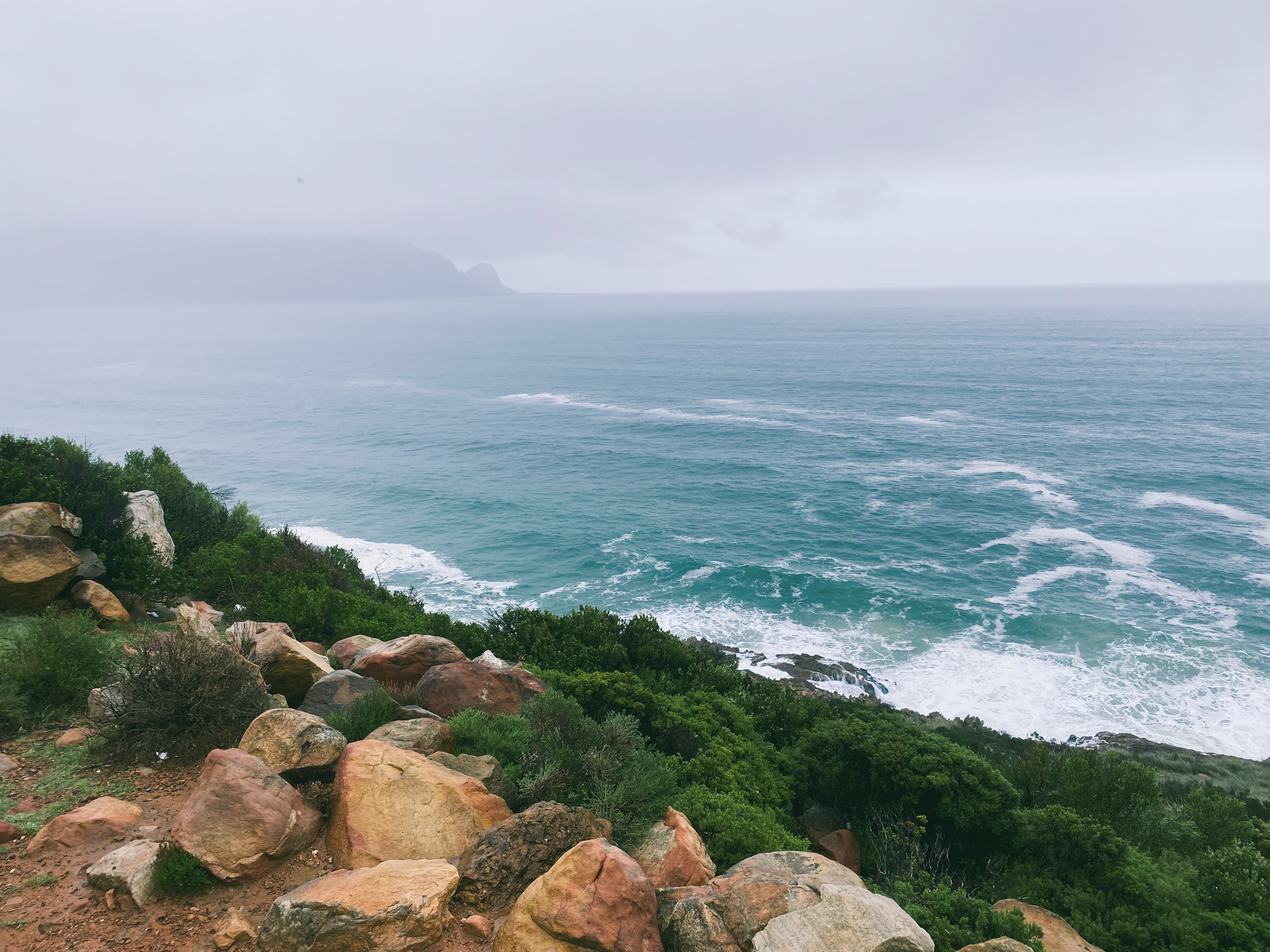Two weeks ago, I went on a writing retreat in Betty’s Bay with a group of my colleagues from the Stellenbosch English Department. The house we stayed in had a spacious, wood-beamed sunroom, where I sat writing while the Cape northwester drove gusts of moody rain against the windows. Each morning, a baboon sauntered through the yard, sending the dogs that had come along into high dudgeon. I’d packed my surfboard, and when the storm swells that had been pounding the coast all week began to taper off on Saturday afternoon, I pulled on my booties and paddled out for a bracing session.
My writing plan for the weekend – submitted in the form of a somewhat hastily assembled concept note – was to start work on an essay exploring the relationship between humans and the earth in recent fiction. Specifically, I wanted to write about Samantha Harvey’s Booker Prize-winning novel, Orbital, which I’d read recently and enjoyed a great deal.
In an interview, Harvey mentions that her aim with the book was to create a kind of “space pastoral”. This strikes me as a great way to describe the blend of naturalism (astronauts going about their mundane astronaut business: performing tests, checking equipment, cleaning toilets) and lyricism (paeans to the earth, the cosmos, the fleetingness of human life) she achieves in the novel. I'm not sure yet what the essay I started writing will turn into, but during the retreat I was thinking about the fluid, constantly morphing image of the earth in the book, forever curving away from the vantage point of the six astronauts travelling around it in low orbit. “[W]ithout that earth we are all finished,” one of them reflects. “We couldn’t survive a second without its grace, we are sailors on a ship on a deep, dark, unswimmable sea.”
On Sunday, on my way home, I stopped along Clarence Drive for coffee. I pulled up right next to a rain-lashed coffee trailer and shouted my order through the car window. A minute later, when I got out to collect my cortado from the amused barista, the rain had eased, so I stood for a few moments surveying the scene. I love that stretch of the R44, winding precipitously along the slopes of Kogelberg, right on the edge of the booming Atlantic. “There’s nothing between that part of the coast and Antarctica,” one of my colleagues had remarked in passing earlier. I sipped my cortado, looking down at the dark and unswimmable sea. Then I got in the car and drove home, wondering if these scenes would find their way into my essay.
